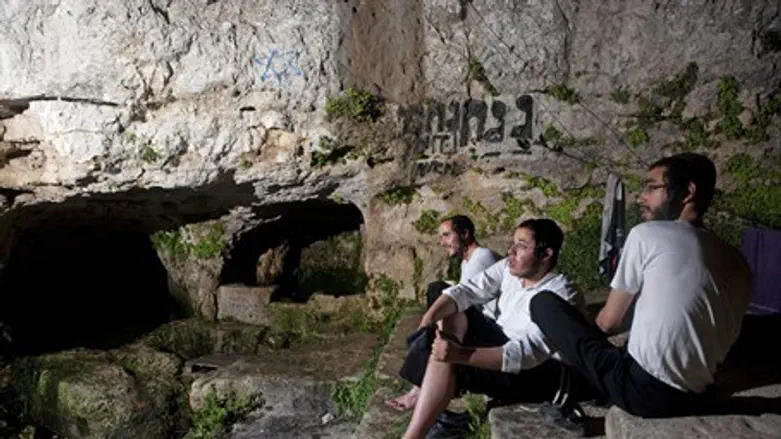
The Temple Mount, Western Wall, Cave of the Patriarchs, Meron, Masada; these are just some of the scores of famous Jewish heritage and religious sites scattered throughout Israel and visited by millions of people each year.
But there are countless others which are far less well-known or frequently visited, and as a result risk being abandoned to the winds of time and lost altogether.
One grassroots Zionist organization is working to change that, while simultaneously "raising the national consciousness" concerning some of the Holy Land's lesser-known, but no less important, Jewish sites.
The Jewish National Initiative (JNI) is made up of young professionals, mostly olim from the US, living in the Tel Aviv area. These are people "who want to fulfill the dream that all of us had when we came to Israel," by fostering Jewish unity through a common Zionist cause, says JNI co-founder Ashley Rindsberg.
One of the most important ways of achieving this, says Rindsberg, is by striving to preserve Israel's Jewish tradition and heritage.
On April 11, the JNI will be leading an effort to restore the tomb of the Biblical prophet or navi Shmuel (Samuel), the ancient Jewish leader who united the Tribes of Israel, anointed the first kings of Israel, and initiated the Davidic Dynasty.

But the tomb of one of Israel's most famous ancient personalities has fallen into disrepair and abandonment, despite being located just a few minutes from Jerusalem's northern neighborhood of Ramot.
Unlike some other famous historic sites - for example Jerusalem's Mount of Olives, or Joseph's Tomb in Shechem (Nablus) - Samuel's Tomb has not been targeted by Muslim vandalism or violence. Instead, it is a victim of what Rindsberg describes as "benign neglect". Rubble dating back from the 1967 Six-Day War, and even as far back as Israel's War of Independence, still lays strewn at the site - and the notion of such a "major historical and religious site" suffering from national apathy is what sprung JNI into action.

"There are pilgrims who come, and small groups who visit the site on a regular basis, but it's not really a part of the national consciousness, and I'm not sure why," he says. "This should be a focal point and it's not... maybe that's partly because Shmuel himself is not a focal point in our national consciousness - and he should be."
He emphasizes that JNI's mission is not an exclusively religious one by any means (many of its members are completely secular) - and that is precisely the point.
"As Jews, we should be looking at Israel as our locus... It unites Jews all over the world - and within Israel certainly it should unite all of us, regardless of background or belief," he says.

Their activities reflect this; as well as restoring religious sites JNI also engages in more "universal" projects, such as efforts to conserve the environment in Israel.
"There are too many lakes and rivers and forests where there's trash strewn around," he says, and adds that Israelis should feel more responsible for their local environment.
"In countries such as the US, where most of our members were born, you on the one hand can witness the incredible impact of action, but on the flip side you see the horrible damage that apathy and indifference produce."
That is one of the reasons why the "Tel Avivee", as he puts it, base of JNI is so significant. Whereas "in Jerusalem for example, people tend to be a little more in touch with their heritage", many in Tel Aviv are markedly more alienated from it.

And projects such as these aren't just positive for what they achieve for Israel's physical environment, but also for the way they inspire those involved and help them connect to Israel through their own physical actions.
"Whether or not the you identify with the more religious interpretations of the importance of the Land of Israel and its relationship to the people of Israel, I think we can all agree that we are privileged to have this place and we should honor it and honor each other," he says.

Photos courtesy of Flash 90